Politics
Russia bans imports of agro-products from Kazakhstan after refusal to join BRICS
Published
6 months agoon
By
Ekwutos Blog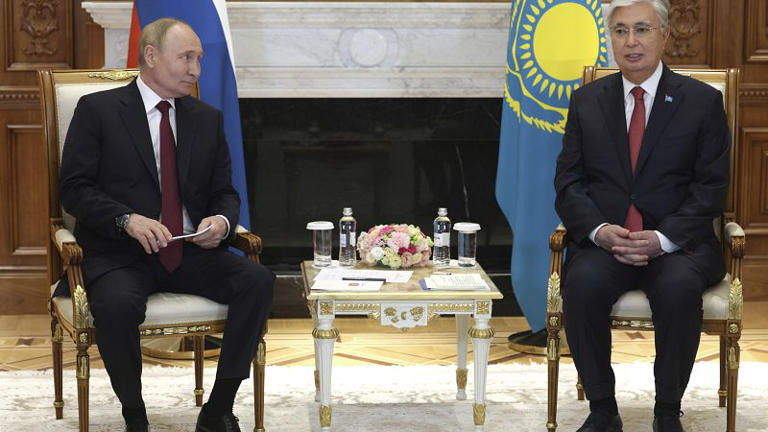
On the eve of the BRICS summit, Kazakhstan said that the country is still “watching the evolution” of the community with interest, and despite the proposals received by President Kasym-Jomart Tokayev, the question of joining the association is not yet on the table. President Kasym-Jomart Tokayev said that in the current circumstances there was no alternative to the UN.
Immediately afterwards it became known that Russia is restricting the import of agricultural products from Kazakhstan, including cut flowers.
The Russian agency in charge offered as an explanation: “Kazakhstan re-exports most flowers from the Netherlands, Poland and Belgium. However, the competent agencies of these countries do not provide the appropriate level of control over the safety of products. The decision was taken in order to preserve the phytosanitary well-being of Russia and the volume of exported goods, as well as in view of the numerous cases (43 cases) of detection in 2023 and 2024 in flower products of the object quarantine for member countries of the Eurasian Economic Union – western flower thrips (Frankliniella occidentalis Pergande), which is a polyphagous. Potential economic damage from the penetration and spread of western flower thrips is more than 11.5 billion rubles,” the agency said in a statement.
Growing pressure on Kazakhstan
Kuat Dombai, director of the C+5 Centre for Central Asian Studies, commented on the dynamics of Russia-Kazakhstan relations for Euronews.
“Restrictions and bans on imports of crop products and wheat between Kazakhstan and Russia undoubtedly reflect growing pressure on Kazakhstan, although it is not the first time they have occurred. Previously, Russia repeatedly banned the transit of Kazakh oil through the Novorossiysk seaport under various pretexts of technical failures at the terminal, which coincided with some pressing issues in bilateral relations. More than 80% of Kazakh oil is exported to Europe through it.”
What guides Astana’s position on possible BRICS membership?
“Kazakhstan has repeatedly stated that it does not intend to violate or to some extent bypass the sanctions measures imposed against Russia in connection with the war in Ukraine, which is in practical terms a very difficult task, given that the country is sharing the world’s largest land border of 7,500 kilometres and is in a single customs space with Russia within the EAEU,” explains Kuat Dombai.
The BRICS meeting is taking place in Kazan while Russian troops are destroying Ukrainian towns and villages. How does Russian military aggression affect relations between Russia and Kazakhstan?
“Kazakhstan has undoubtedly found itself in a very difficult economic situation, falling under the threat of secondary sanctions, traditional logistical chains have been destroyed, and Kazakh society is logically and soberingly aware of the threat of possible territorial claims around the corner. Given that after the collapse of the USSR it was two countries – Kazakhstan and Ukraine – that were signatories of the Budapest Memorandum with guarantees from the West in exchange for giving up nuclear weapons,” the analyst explains.
Kremlin: BRICS “is not an alliance against anyone”
Many Western observers believe that amid international sanctions and ongoing military aggression against Ukraine, Russia is trying to show that plans to isolate Vladimir Putin have failed.
The Kremlin says more than 30 countries have applied to join BRICS, but the exact list of countries has not been disclosed.
Foreign Minister Sergei Lavrov said in an interviewwith Russian media that “BRICS does not force anyone to sacrifice anything.” According to Lavrov, “this association is not against anyone.” The head of Russian diplomacy also noted that with regard to Kazakhstan’s statements about the UN, “it is necessary to clarify this position.”
“Kazakhstan is a member of many other organisations – the OSCE, CIS, CSTO, SCO and an active member of the Organisation of Turkic States, which, at the initiative of Turkey, is now strengthening ties and is on the rise. The organisation pays great attention to the representatives of our Central Asian allies and strategic partners. None of this prevents either Kazakhstan or other Central Asian countries from actively participating in the United Nations, which is a universal structure but which is now in crisis through no fault of our own. It seems to me that in the long run our southern neighbours, our allies in the CSTO and the EAEU, first of all, will see the direct benefits of rapprochement with the BRICS. It is not necessary to join, but to co-operate in the implementation of specific projects – there is no doubt. This is in the interests of all of us,” Lavrov said.
You may like


Trading platform users deny crash claim


GOOGLE’S $2 TRILLION STORY: FROM HUMBLE BEGINNINGS TO GLOBAL DOMINATION


Nigerians score CrediCorp, power, agric ministries low
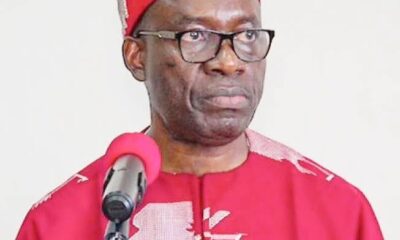

We must stop contaminating our rivers and streams in the name of ‘odinani’ (tradition)—- Gov Chukwuma Soludo


Peter Obi Is the Stingiest Human Being, We Worked for Him, He Didn’t Give Us Shishi – Michael Piper


Olumba Olumba Obu Honored: Actors Guild of Nigeria Awards Spiritual Leader “King of Nollywood”
Politics
Peter Obi Is the Stingiest Human Being, We Worked for Him, He Didn’t Give Us Shishi – Michael Piper
Published
2 hours agoon
April 12, 2025By
Ekwutos Blog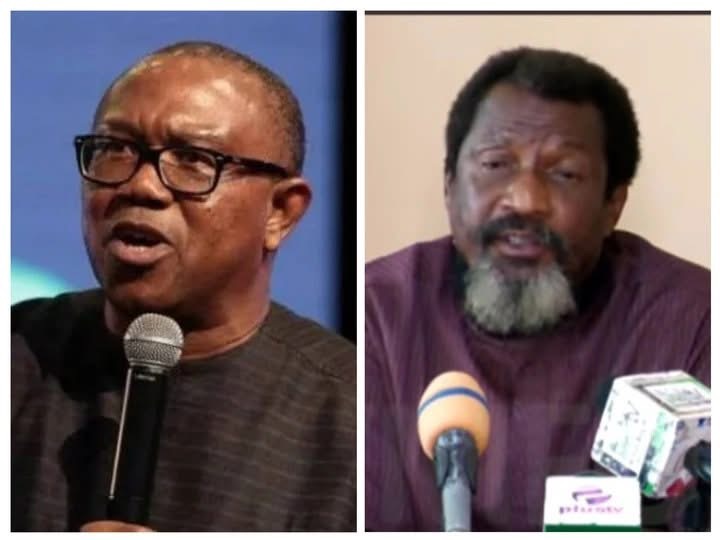
In a video posted by Symfoni, Michael Piper who was a member of Obedience for a Better Nigeria accused Peter Obi of being extremely stingy, claiming that despite the wide support he received from civil society groups and media personalities during his campaign, Obi offered no financial support.
In his statement, he said;
”Peter Obi no dey give Shishi. He’s a multi-billionaire and one of the stingiest human beings you will ever meet, Even when we were campaigning for Peter Obi, even those who were bloggers, popular bloggers, he didn’t even give them money for data.”
Piper made it clear that he personally received nothing from Obi throughout the campaign period.
“I campaigned for Peter Obi for 8 months. I never received a penny from him. If Peter Obi gave me one naira, please, they should publish it anywhere.”
According to Piper, the Labour Party’s success in 2023 was due to the collective effort of civil society actors, not Obi’s personal ideology. He warned that Obi’s presence is now turning the party into a war zone.
Politics
If I had remained as governor of Anambra State, I would have done one single term of four years and leave—Chris Ngige
Published
3 hours agoon
April 12, 2025By
Ekwutos Blog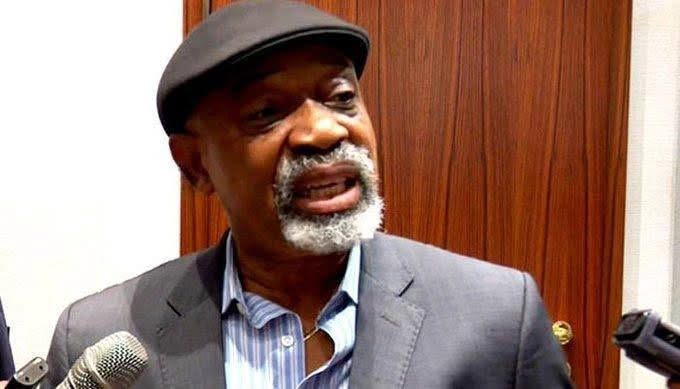
According to a video posted on YouTube by Symfoni, Chris Ngige, a prominent Nigerian politician and former governor of Anambra state recently reflected on his tenure as governor of Anambra State and revealed his thoughts on serving a single term in office.
Ngige, who held the office of governor from 2003 to 2006, expressed that had he remained in power, he would have opted for a single, four-year term.
He stated, “If I had remained as governor of Anambra State, I would have done one single term of four years and leave.” Ngige pointed out the limitations of political office, emphasizing that it often leaves little room for personal life and privacy, which he found stifling.
Politics
2027: PDP Governors, Senators Reject Atiku’s Coalition
Published
4 hours agoon
April 12, 2025By
Ekwutos Blog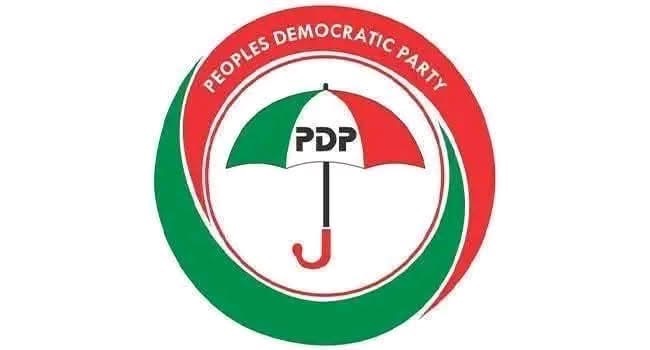
Rising from a meeting in the early hours of yesterday, governors elected on the platform of the Peoples Democratic Party (PDP) and leaders of thought within the party resolved not to abandon the party for any coalition ahead of the 2027 presidential election.
Former vice president Atiku Abubakar and the party’s 2023 presidential candidate, had recently hinted that the party was going into a coalition with other opposition leaders to chase the All Progressives Congress (APC) out of power in 2027.
But the party leaders and the governors who met on Wednesday night through Thursday morning in Abuja, believe that rather than build any coalition, the energy and resources should be channeled to building the PDP.
Among those present at the meeting were two former Senate presidents, David Mark and Bukola Saraki, former governors of Kaduna, Jigawa and Sokoto states, Ahmed Makarfi, Sule Lamido and Senator Aminu Tambuwal.
Others were former Minister of Police Affairs, Adamu Maina Waziri and former Defence minister, Lawal Batagarawa, with the governors represented by two of their colleagues – Governors Bala Mohammed of Bauchi and Ahmadu Umaru Fintiri of Adamawa State.
Sources told Daily Sun that at the meeting held under frank atmosphere, the leaders decided to rebuild the PDP.
“And they also briefed the governors on their plan to achieve their aim of building the party and they want the governors to work towards the same aim.
“They resolved that there is no need to abandon the party and be working on any coalition. They instead insisted that rather than work to build any coalition, the efforts to start a coalition should be deployed to build the PDP, using the same resources, energy, time and strategy they want to use for the coalition, for the PDP.
“They noted that all the parties with no exception, including the APC, have their challenges and internal crisis. As such, PDP leaders should work to reconcile the differences and rebuild their structure instead of seeking any new platform,” one of the sources told Daily Sun.

Trading platform users deny crash claim

GOOGLE’S $2 TRILLION STORY: FROM HUMBLE BEGINNINGS TO GLOBAL DOMINATION

Nigerians score CrediCorp, power, agric ministries low
Trending

 Trending6 months ago
Trending6 months agoNYA demands release of ‘abducted’ Imo chairman, preaches good governance
- Business6 months ago
US court acquits Air Peace boss, slams Mayfield $4000 fine

 Politics6 months ago
Politics6 months agoMexico’s new president causes concern just weeks before the US elections
- Entertainment6 months ago
Bobrisky transferred from Immigration to FCID, spends night behind bars
- Entertainment6 months ago
Bobrisky falls ill in police custody, rushed to hospital

 Politics6 months ago
Politics6 months agoPutin invites 20 world leaders
- Politics1 year ago
Nigerian Senate passes Bill seeking the establishment of the South East Development Commission.

 Business1 year ago
Business1 year agoInflation hits record high of 29.90% on naira weakness

